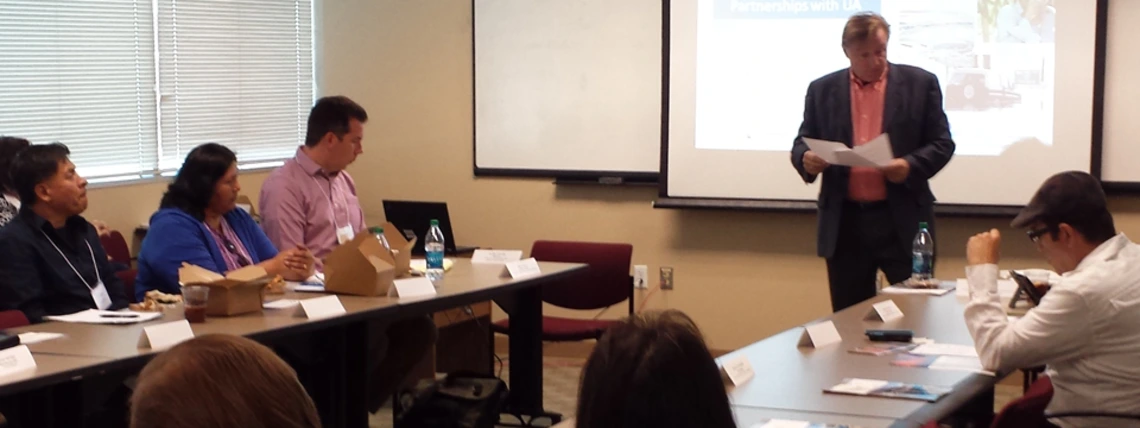CCASS Native Nations Climate Adaptation Program Team Creates Partnerships and Networks

The University of Arizona’s Climate Center for Adaptation Science and Solutions (CCASS) serves vulnerable populations in the Southwest through its Haury Native Nations Adaptation Program (HNNAP). With support from the Haury Program, HNNAP is forging teams among local and regional tribal, Hispanic, other vulnerable populations, and the University to create effective practices and increase communities’ resilience as the climate warms.
In its first six months, the University of Arizona’s (UA) Climate Center for Adaptation Science and Solutions (CCASS) Native Nations Tribal Adaptation Program (HNNAP) has forged significant partnerships and initiatives throughout the University and local and regional communities. The UA community of interested researchers is growing; network-building is forging stronger collaborations with governmental and other groups; and “climate conversations” are underway with indigenous, Hispanic, and other vulnerable populations. The goal of these efforts is to improve the ability of the region to undertake the research and adopt the actions and management practices that are needed to effectively manage the effects of climate change.
To promote discussion on climate impacts and adaptation, Chad Marchand, HNNAP Coordinator, has met with dozens of individuals, tribal representatives, and groups to help determine the needs of vulnerable populations and assess how HNNAP and CCASS can help them build resiliency to climate change. “Climate conversations” with leaders in Hispanic and native communities in southern Arizona are building toward a large regional meeting for late 2015 or early 2016.
In November 2015 representatives of tribes who have successfully created climate adaptation plans will meet to share lessons learned from their efforts. To date only nine of 566 tribes have created such plans, and their insights will help inform other tribes as they prepare plans. The Tohono O’odham Nation has chosen to work with CCASS on its plan, which could serve as a prototype for other CCASS adaptation work.
Marchand’s HNNAP work and the work of CCASS in general is already expanding beyond Arizona and becoming acknowledged as a resource for governmental agencies and communities. While never losing sight of the local focus, HNNAP activities demonstrate that networking among vulnerable populations and University researchers is a useful model for groups throughout the nation and possibly worldwide as they grapple with adapting to a changing climate.
